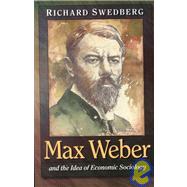Max Weber and the Idea of Economic Sociology
, by Swedberg, Richard- ISBN: 9780691070131 | 069107013X
- Cover: Paperback
- Copyright: 7/10/2000
While most people are familiar withThe Protestant Ethic and the Spirit of Capitalism, few know that during the last decade of his life Max Weber (1864-1920) also tried to develop a new way of analyzing economic phenomena, which he termed "economic sociology." Indeed, this effort occupies the central place in Weber's thought during the years just before his death. Richard Swedberg here offers a critical presentation and the first major study of this fascinating part of Weber's work. This book shows how Weber laid a solid theoretical foundation for economic sociology and developed a series of new and highly evocative concepts. He not only investigated economic phenomena but also linked them clearly with political, legal, and religious phenomena. Swedberg also demonstrates that Weber's approach to economic sociology addresses a major problem that has haunted economic analysis since the nineteenth century: how to effectively unite an interest-driven type of analysis (popular with economists) with a social one (of course preferred by sociologists). Exploring Weber's views of the economy and how he viewed its relationship to politics, law, and religion, Swedberg furthermore discusses similarities and differences between Weber's economic sociology and present-day thinking on the same topic. In addition, the author shows how economic sociology has recently gained greater credibility as economists and sociologists have begun to collaborate in studying problems of organizations, political structures, social problems, and economic culture more generally. Swedberg's book will be sure to further this new cooperation.







